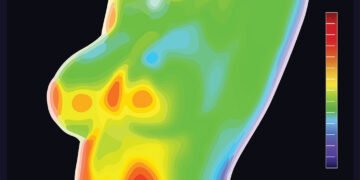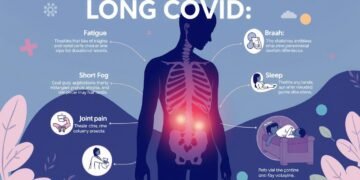Reducing belly fat without hitting the gym is achievable through straightforward, science-backed methods. By focusing on dietary adjustments, staying hydrated, practicing mindful eating, managing stress levels, and improving sleep quality, individuals can effectively work towards their weight loss goals.
Understanding the underlying causes of excess fat around the abdominal area is crucial. By implementing targeted strategies, not only can you lose unwanted weight, but you can also enhance your overall well-being. This article will guide you through these simple yet effective tips, providing actionable advice to help you get started on your journey to a healthier, slimmer you.
Key Takeaways
- Implement dietary changes to reduce belly fat.
- Stay hydrated to support weight loss.
- Practice mindful eating to avoid overeating.
- Manage stress through relaxation techniques.
- Improve sleep quality for better weight management.
Understanding Belly Fat: Why It Matters
The accumulation of belly fat is not just a cosmetic problem; it’s a serious health risk factor. Belly fat, also known as visceral fat, accumulates around the abdomen and can surround vital organs. This type of fat is particularly concerning due to its association with various health issues.
What Is Belly Fat?
Belly fat refers to the fat that accumulates around the abdominal region. It can be subcutaneous (just beneath the skin) or visceral (around the organs). Visceral fat is the more dangerous type because it’s linked to higher risks of chronic diseases.
Types of Belly Fat
There are two main types of belly fat: subcutaneous and visceral. Subcutaneous fat is the layer of fat just beneath the skin and is generally less harmful. Visceral fat, on the other hand, accumulates around the organs and is associated with higher health risks.
- Subcutaneous Fat: The fat layer just under the skin.
- Visceral Fat: Fat that accumulates around internal organs.
Health Risks Associated with Belly Fat
Excess belly fat, particularly visceral fat, is linked to several serious health conditions. These include:
- Cardiovascular Disease: Visceral fat is associated with increased risk of heart disease.
- Type 2 Diabetes: Excess belly fat can lead to insulin resistance.
- Certain Cancers: There’s evidence linking visceral fat to an increased risk of certain cancers.
Understanding these risks highlights the importance of managing belly fat through a combination of diet, lifestyle changes, and potentially incorporating fat-burning foods into one’s diet. Maintaining good body fat health is crucial for overall well-being.
Diet Changes for Belly Fat Reduction
Dietary changes play a pivotal role in reducing belly fat, and there are several effective strategies to achieve this. By focusing on the right foods and nutrients, you can significantly impact your belly fat without needing to exercise.
Focus on Whole Foods
Whole foods, such as fruits, vegetables, lean proteins, and whole grains, are rich in essential nutrients and fiber. These foods help in keeping you full and satisfied, reducing the likelihood of overeating. Incorporating a variety of whole foods into your diet can be achieved by:
- Eating a rainbow of fruits and vegetables
- Choosing lean proteins like poultry, fish, and legumes
- Opting for whole grains over refined grains
This approach not only aids in weight loss but also improves overall health. Whole foods are naturally low in unhealthy fats and added sugars, making them an ideal choice for those looking to reduce belly fat.
The Role of Fiber in Weight Loss
Fiber is a crucial nutrient that plays a significant role in weight management. It helps in slowing down digestion, keeping you feeling fuller for longer, and promoting regular bowel movements. Foods high in fiber include:
- Fruits like apples, berries, and bananas
- Vegetables such as broccoli, carrots, and Brussels sprouts
- Legumes, including beans, lentils, and peas
- Whole grains like oats, barley, and quinoa
A high-fiber diet can significantly contribute to losing belly fat by improving satiety and reducing overall calorie intake.
Cutting Back on Sugars and Refined Carbs
Consuming high amounts of sugars and refined carbohydrates can lead to increased insulin resistance and fat storage around the belly. Reducing the intake of these foods is crucial for belly fat loss. Tips for cutting back include:
- Limiting sugary drinks and desserts
- Avoiding refined grains like white bread and pasta
- Choosing complex carbohydrates over simple ones
By making these dietary adjustments, you can effectively reduce belly fat and improve your overall health. A no exercise diet focusing on whole foods, high fiber, and low in sugars and refined carbs can be a highly effective nutrition hack for weight loss.
The Importance of Hydration
Drinking enough water is often overlooked in weight loss discussions, but it’s a vital component of a healthy metabolism booster. Hydration plays a crucial role in our overall health, and it’s especially important when trying to lose belly fat. When the body is well-hydrated, it can function more efficiently, including the processes that help burn fat.
Water helps with weight loss in several ways. It aids in digestion, helping to prevent constipation and reduce bloating. Moreover, drinking water can help control hunger, as sometimes thirst can be mistaken for hunger. Even mild dehydration can slow down metabolism, leading to a decrease in the body’s ability to burn fat.
How Water Helps With Weight Loss
Drinking water can boost your metabolism, helping your body to burn calories more efficiently. Studies have shown that drinking water can increase the rate at which the body burns fat. Additionally, water helps in the proper functioning of the digestive system, ensuring that nutrients are absorbed and waste is eliminated effectively.
- Water helps suppress appetite, reducing the likelihood of overeating.
- It improves digestion, reducing symptoms of bloating and discomfort.
- Proper hydration supports the body’s natural detoxification processes.
As noted by health experts, “Even mild dehydration can cause fatigue, headaches, and difficulty concentrating, all of which can impact your ability to stick to a weight loss diet.”
“Drinking water is essential for maintaining a healthy metabolism and supporting weight loss efforts.”
Tips for Staying Hydrated
Staying hydrated is simple with a few straightforward tips:
- Drink water throughout the day, aiming for at least eight glasses.
- Incorporate hydrating foods into your diet, such as watermelon and cucumbers.
- Monitor your urine output; if it’s pale yellow or clear, you’re likely hydrated.
By making hydration a priority, you can support your weight loss efforts and improve your overall health. Remember, water is a natural metabolism booster that can help you achieve your weight loss goals more effectively.
Mindful Eating Techniques
The practice of mindful eating offers a simple yet powerful tool for managing weight and improving overall health. By paying attention to the experience of eating, individuals can develop a healthier relationship with food.
What Is Mindful Eating?
Mindful eating involves savoring each bite, paying attention to the taste, texture, and smell of food, and listening to the body’s hunger and fullness cues. As noted by experts,
“Mindful eating is about experiencing food more intensely, especially outside of the context of dieting or judgment.”
It’s about creating a positive and enjoyable eating experience.
Benefits of Eating Slowly
Eating slowly has several benefits for weight management. It allows the body to register feelings of fullness, reducing the likelihood of overeating. Research has shown that slower eaters tend to consume fewer calories and have a lower risk of obesity. By taking time to enjoy meals, individuals can also enhance their digestion and reduce stress.
- Improves digestion
- Reduces overeating
- Enhances the eating experience
Listening to Your Body’s Hunger Cues
Listening to the body’s hunger and fullness cues is a critical aspect of mindful eating. It involves recognizing true hunger and stopping when satisfied, rather than stuffed. As nutrition experts suggest, paying attention to these cues can lead to more effective weight loss and a healthier relationship with food.
To practice mindful eating, start by eliminating distractions during meals, such as turning off the TV or putting away your phone. Then, focus on your food, chewing slowly and savoring each bite. This approach can help you become more attuned to your body’s needs and support your weight loss goals.
Stress Management and Belly Fat
High stress levels can hinder your efforts to lose belly fat. Stress has a profound impact on the body, affecting various physiological processes that can lead to increased fat storage around the abdominal area.
Impact on Weight
When you’re under chronic stress, your body releases more cortisol, a hormone that promotes fat storage around the abdomen. Elevated cortisol levels not only increase appetite but also lead to cravings for unhealthy, high-calorie foods, making it challenging to slim your stomach.
Reducing Stress Effectively
Engaging in stress-reducing activities can help mitigate the negative effects of cortisol on your body. Techniques such as yoga, journaling, and spending time in nature can significantly lower stress levels. These activities not only help in managing stress but also contribute to an overall healthier lifestyle.
Mindfulness for Relaxation
Mindfulness practices, including meditation and deep breathing exercises, are effective tools for managing stress. These techniques help calm the mind and reduce cortisol levels, creating a more favorable environment for weight loss. Regular mindfulness practice can lead to better eating habits and improved overall well-being.
By incorporating stress management techniques into your daily routine, you can take a significant step towards achieving your goal to lose belly fat. It’s about creating a balanced lifestyle that supports both physical and mental health.
The Role of Sleep in Losing Belly Fat
Sleep affects body fat health in ways that are often overlooked. While diet and exercise are commonly associated with weight loss, the importance of sleep cannot be overstated. Adequate sleep is crucial for overall health, including the regulation of body fat.
Connection Between Sleep and Weight
The relationship between sleep and weight is complex. Research has shown that poor sleep quality and duration can disrupt hormones that regulate hunger and fullness, leading to increased appetite and weight gain. Specifically, the levels of leptin (the “fullness hormone”) decrease, and ghrelin (the “hunger hormone”) increase when sleep is inadequate.
Key hormonal changes due to poor sleep include:
- Decreased leptin levels
- Increased ghrelin levels
- Potential for increased cortisol levels, further contributing to belly fat storage
Tips for Improving Sleep Quality
Improving sleep quality is essential for supporting weight loss efforts. Here are some tips to enhance your sleep:
- Establish a Consistent Sleep Schedule: Go to bed and wake up at the same time every day, including weekends.
- Create a Relaxing Bedtime Routine: Engage in calming activities like reading, meditation, or a warm bath before bed.
- Optimize Your Sleep Environment: Ensure your bedroom is dark, quiet, and at a comfortable temperature. Invest in a comfortable mattress and pillows.
- Avoid Stimulants Before Bedtime: Limit caffeine and electronic screen use at least an hour before bedtime.
By implementing these strategies, you can improve your sleep quality, support your weight loss journey, and enhance overall body fat health.
Utilizing Probiotics for Belly Fat Loss
Probiotics, the beneficial bacteria in your gut, play a crucial role in overall health and may aid in belly fat loss. A healthy gut microbiome is essential for efficient digestion, immune function, and even influences metabolism and fat storage.
What Are Probiotics?
Probiotics are live microorganisms that confer health benefits when administered in adequate amounts. They are often referred to as “good” or “friendly” bacteria because they help maintain the gut’s natural balance. Probiotics can be found in fermented foods, dietary supplements, and some dairy products.
The most commonly used probiotics belong to the genera Lactobacillus and Bifidobacterium. These beneficial bacteria help in digestion, produce vitamins, and support the immune system.
Foods Rich in Probiotics
Incorporating probiotic-rich foods into your diet is a delicious way to support gut health. Some of the best sources include:
- Yogurt, especially those with live and active cultures
- Kefir, a fermented milk drink
- Sauerkraut, fermented shredded cabbage
- Kimchi, a Korean fermented vegetable dish
- Miso, a fermented soybean paste
- Kombucha, a fermented tea drink
These foods not only provide probiotics but are also rich in other nutrients, making them a great addition to a weight loss diet.
Probiotics and Weight Management
Research has shown that probiotics can influence weight management by affecting the way the body processes and stores fat. Certain strains of probiotics have been found to improve metabolic function, reduce inflammation, and even help regulate appetite.
By supporting a healthy gut microbiome, probiotics can be a valuable component of a comprehensive weight loss plan. When combined with a balanced diet and healthy lifestyle, probiotics may enhance the body’s ability to lose belly fat and maintain weight loss over time.
In conclusion, utilizing probiotics for belly fat loss is a promising approach that supports overall gut health and metabolic function. By understanding what probiotics are, incorporating probiotic-rich foods into your diet, and leveraging their benefits for weight management, you can take a significant step towards achieving your weight loss goals.
Creating a Lifestyle Change
Transforming your lifestyle is key to losing belly fat and maintaining overall health. This involves more than just temporary adjustments; it’s about adopting sustainable habits that contribute to long-term well-being.
Small Changes Add Up
One of the most effective ways to create a lasting lifestyle change is by making small, incremental adjustments to your daily routine. For instance, incorporating a no exercise diet plan that focuses on nutrition hacks can significantly impact your weight loss journey. Start by making one or two changes, such as reducing sugar intake or increasing your consumption of whole foods.
- Gradually introduce healthier food options.
- Reduce portion sizes to manage calorie intake.
- Stay hydrated by drinking plenty of water.
Setting Realistic Goals
Setting achievable goals is crucial for maintaining motivation. Break down larger goals into smaller, manageable tasks. For example, aim to lose a certain amount of weight in a month rather than trying to lose it all at once.
| Goal | Timeframe | Action Plan |
|---|---|---|
| Reduce sugar intake | 2 weeks | Replace sugary drinks with water |
| Increase whole food consumption | 1 month | Add a serving of fruits or vegetables to each meal |
Building a Supportive Environment
Surrounding yourself with a supportive network can significantly enhance your ability to stick to your new lifestyle. Share your goals with friends and family, and consider joining a community of like-minded individuals.
By focusing on these areas and making gradual changes, you can create a sustainable lifestyle that supports your weight loss goals and overall health.
Tracking Progress
Monitoring your progress is crucial for achieving a slim stomach. Regular weight checks, body measurements, and tracking food intake can help you stay on course. Incorporating a metabolism booster into your diet can also enhance your weight loss efforts.
Effective Monitoring Techniques
To effectively track your progress, consider maintaining a food diary or using a mobile app to log your daily food intake and physical activities. This will help you identify patterns and make necessary adjustments to your slim stomach tips.
Making Adjustments
As you track your progress, be prepared to make adjustments to your plan. This may involve tweaking your diet or exploring new stress management techniques to ensure you’re on track to meet your goals.
Acknowledging Success
Celebrating small victories along the way can help maintain motivation. Whether it’s fitting into a smaller size or completing a challenging week of healthy eating, acknowledging your successes can reinforce positive behaviors and keep you motivated on your journey to a slimmer stomach.









































Discussion about this post